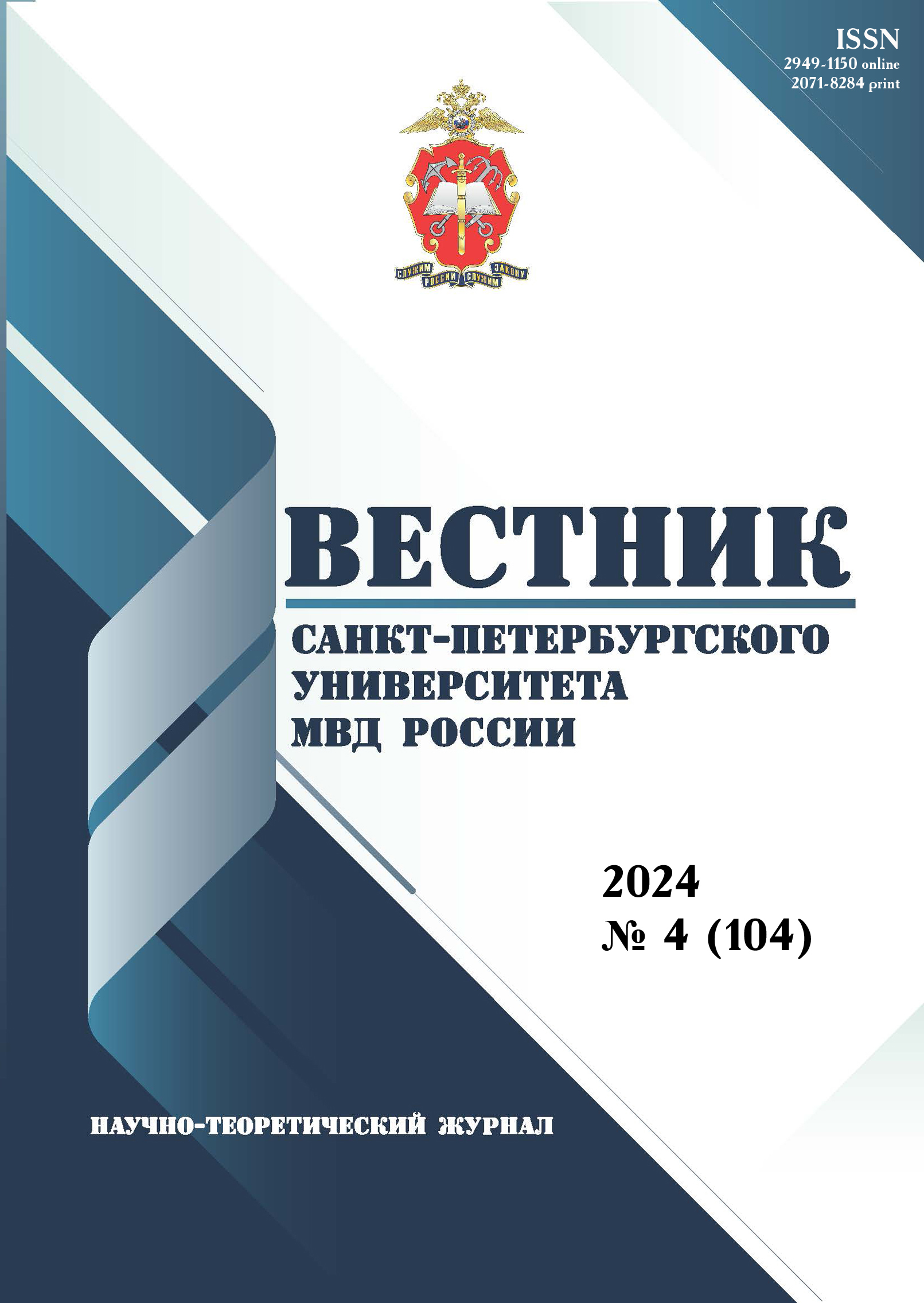Krasnodar, Krasnodar, Russian Federation
Krasnodar, Krasnodar, Russian Federation
UDC 343.98
Introduction. This article provides a brief overview of the core theoretical issues pertaining to the group methodology of criminal investigation. The paper explores the structure of forensic methodology, focusing on the concept and classifications. The findings about the reasons for the separation of special elements of this structure are made. The article highlights the need of singling out (separation) the methodology for investigating large groups of crimes and as well as the need for research into the theoretical issues of group investigation methodology. The criteria for singling out crimes of enlarged groups are then presented and substantiated. Finally, the most common forensic features of investigation are considered. The criteria for the singling out similar criminal-legal and forensic characteristics of crimes and the methodology of their investigation have been identified and studied. The main structural elements of group investigation methodology have been identified. The difference between group methodology and private investigation methodology has been elucidated. The subject of group methodology is the features of theoretical provisions, the content of the criminal investigation of an enlarged group, and similar features in the criminal-legal and forensic characteristics of these crimes. Methods and results. The study of structural elements of group methodology revealed the necessity to explore the concept of principles. The objective nature of the main principles of group methodology was substantiated. The following principles were identified: the principle of using similar features of crimes committed by an enlarged group; the principle of combining scientific and practical recommendations of a particular investigation with recommendations designed by group methodology; and the principle of completeness of combining general provisions of methodology with private methodology. The content and significance of these principles for qualitative investigation were then examined.
forensic methodology, private methodologies, group investigation methodologies, criminal law features, forensic features
1. Yablokov N. P., Golovin A. Yu. Kriminalistika. Priroda i sistema. – Moskva: Yurist, 2005. – 173 s.
2. Kuemzhieva S. A. Metodika rassledovaniya prestupleniy protiv sem'i i nesovershennoletnih : monografiya / pod nauch. red. V. D. Zelenskogo. – Moskva: Yurlitinform, 2018. – 257 s.
3. Sovetskaya kriminalistika : Teoreticheskie problemy / N. A. Selivanov, V. G. Tanasevich, A. A. Eysman, N. A. Yakubovich. – Moskva: Yuridicheskaya literatura, 1978. – 192 s.
4. Luzgin I. M. Razvitie metodiki rassledovaniya otdel'nyh vidov prestupleniy // Pravovedenie. – 1977. – № 2. – S. 58–65.
5. Vozgrin I. M. Kriminalisticheskaya metodika rassledovaniya prestupleniy. – Minsk: Vysheyshaya shkola, 1983. – 215 s.
6. Vozgrin I. M. Vvedenie v kriminalistiku : Istoriya, osnovnye teorii, bibliografiya. – Sankt-Peterburg: Yuridicheskiy centr Press, 2003. – 473 s.
7. Kornouhov V. E. Metodika rassledovaniya prestupleniy: teoreticheskie osnovy : monografiya. – Moskva: Norma, 2016. – 224 s.
8. Kosarev S. Yu. Kriminalisticheskaya metodika rassledovaniya prestupleniy (stanovlenie i perspektivy razvitiya) : monografiya. – Sankt-Peterburg: Sankt-Peterburgskiy universitet MVD Rossii, 2005. – 306 s.
9. Garmaev Yu. P. Teoreticheskie osnovy formirovaniya kriminalisticheskih metodik rassledovaniya prestupleniy. – Irkutsk: Irkutskiy yuridicheskiy institut General'noy prokuratury Rossiyskoy Federacii, 2003. – 341 s.
10. Filippov A. G., Subbotina M. V. Struktura bazovoy metodiki rassledovaniya prestupleniy // Vestnik kriminalistiki. – 2004. – № 4 (12). – S. 4–7.
11. Yablokov N. P. Kriminalisticheskaya metodika rassledovaniya: istoriya, sovremennoe sostoyanie i problemy : monografiya. – Moskva: Norma, 2016. – 190 s.
12. Teoriya dokazatel'stv v sovetskom ugolovnom prave processe / Belkin R. S. [i dr.] ; redkol.: Zhogin N. V. (otv. red. ) [i dr.]. – Izd. 2-e, ispr. i dop. – Moskva: Yuridicheskaya literatura, 1973. – 734 s.
13. Zelenskiy V. D. Organizacionnye funkcii sub'ektov rassledovaniya prestupleniy. Krasnodar, 2005. – S. 41-42.
14. Kuemzhieva S. A., Zelenskiy V. D. Obschie polozheniya kriminalisticheskoy metodiki : monografiya. – Krasnodar: Kubanskiy gosudarstvennyy agrarnyy universitet imeni I. T. Trubilina, 2015. – 148 s.
15. Vardanyan A. V., Kuleshov R. V. K voprosu o principah formirovaniya chastnyh kriminalisticheskih metodik // Rossiyskiy sledovatel'. – 2015. – № 22. – S. 7–13.














